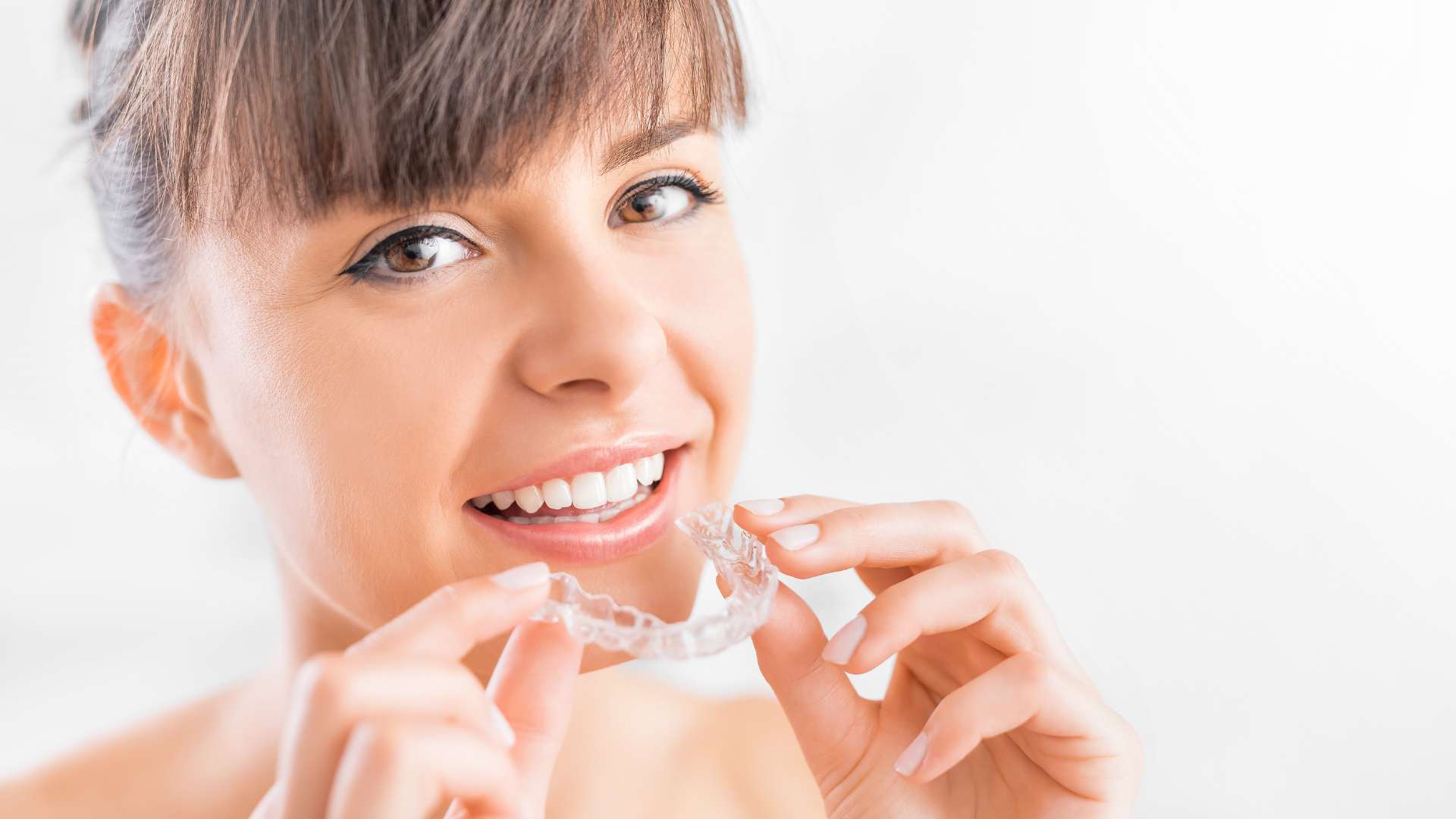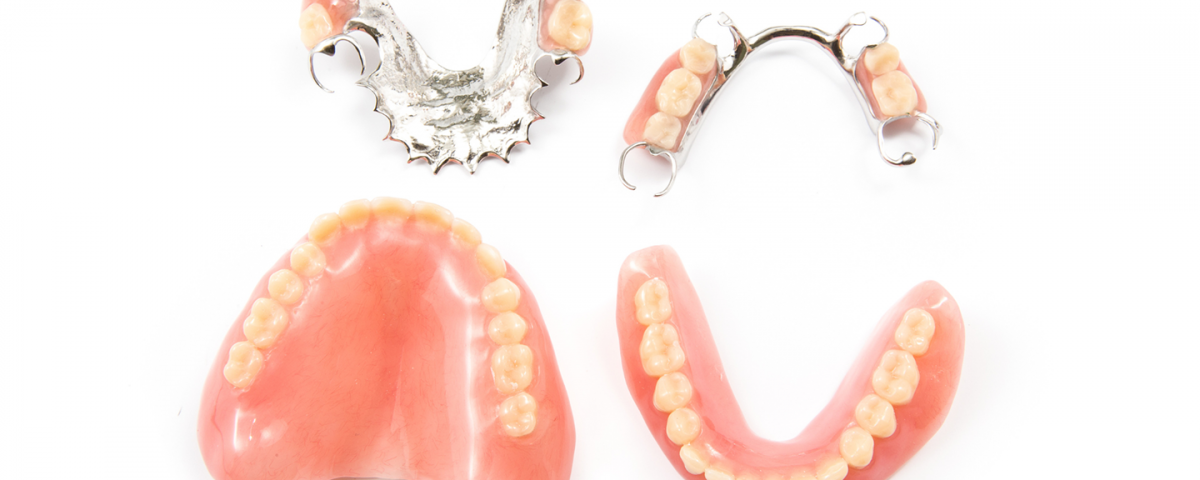
Is Drinking Sparkling Water Bad For Your Teeth?
October 22, 2022
How to Clean Invisalign Retainers: Our Guide
December 28, 2022Dentures preserve your smile and allow you to continue to eat the foods you love. Custom-made dentures replace some or all of your teeth.
Innovations in dentistry allow you more options for dentures than ever before. Dr. Kari Langley provides all these options at Langley Dental Care.
What Are the Different Types of Dentures?
Dentures come in various types based on how much of your mouth they cover, when you have them placed, and how they stay in your mouth. Depending on your needs, you may require partials, implant-retained dentures, immediate dentures, or conventional ones. When customized by a professional, you should have comfortable dentures that last for years.
Partial Dentures
You may still need dentures even if you have only lost a few teeth. If the remaining teeth are healthy and strong, you may be able to keep them and wear partial dentures instead of a full set of dentures to replace all your teeth.
The construction of partial dentures could use all acrylic or a combination of metal and acrylic. Generally, temporary partials use total acrylic construction. For longer-lasting partials, you may get metal and acrylic partial dentures. These have a thinner fit and are easier to keep clean.
Dr. Langley will discuss the type of partial dentures best for your mouth.
Conventional Dentures
Conventional dentures are what most people think of when they hear about dentures. These full-coverage teeth replacements fit over the top or bottom of your mouth. The upper denture replaces your top teeth and covers the palate at the top of your mouth.
An acrylic composition of these dentures allows them to blend into the rest of your mouth. Bottom dentures differ from their upper counterparts because they have a gap that allows for the tongue to move around the dentures. Teeth in conventional dentures may have plastic or porcelain construction.
If you get conventional dentures and still have any remaining teeth, you will first need the extraction to remove the teeth. Your gums must heal before you get your dentures. Due to natural changes in the jawbone, your dentures will change how they fit over time. Therefore, you should keep up with regular dental visits to ensure that your dentures fit well.
Implant-Retained Dentures
Implant-retained dentures require an extra step before getting your dentures. Depending on the type of implant-retained dentures and their location, you may need at least two dental implants placed in your jaw.
Dental implants for supporting dentures include those that have ball or bar attachments. Ball attachments allow you to snap your dentures onto two implants on your lower teeth for easier insertion and removal. However, these may move slightly during use. Bar attachments require more implants to support the bars that your dentures – called overdentures – fit over. These types of removable dentures have a tighter, more secure fit.
Permanent dentures are another option that attaches to dental implants with screws. They stay in place until you visit the dentist, who may remove them for examination or adjustments.
Many people prefer the extra stability of implant-retained dentures. Talk to Dr. Langley about whether your jaw will properly support the implants for this type of denture.
Immediate Dentures
Conventional dentures cannot fit into your mouth until after your gums and oral tissues have healed from the extractions. In the meantime, you may use immediate dentures. Dr. Langley begins planning the construction and fitting of these dentures before you have your extraction. The early planning allows you to wear these dentures as a temporary solution until you can get your conventional dentures.
At the extraction appointment, Dr. Langley will have your immediate dentures ready to fit into your mouth as you heal. The dentures protect your oral tissues during healing and allow you to continue eating normally during recovery.
You cannot wear immediate dentures permanently. After extraction, bone in your mouth will likely recede and change the shape of your oral cavity. You will need the final fitting of your conventional dentures to ensure they are comfortable to wear.
Immediate dentures are a temporary solution to allow you to avoid living without teeth while your mouth heals. You must follow all postoperative directions for keeping your mouth and dentures clean until you return to the dentist for your regular set of dentures.
Caring for Your Dentures
Just as your teeth need brushing, flossing, and professional cleaning, your dentures also need routine care and cleaning. Following these steps will ensure your dentures stay in good condition for years.
First, check how often your dental insurance will cover replacement dentures. Most policies allow for a new set every five years, but your coverage may differ.
Maintain regular dental appointments as recommended by the dentist. Your jaw is still changing shape, and your dentures will eventually need replacement to fit better. Plus, teeth in your dentures may wear down, which could lead to replacement.
At home, keep your dentures submerged in denture cleaner or water to prevent the material from drying out. However, don’t use hot water to soak your dentures. The heat can warp them.
Dentures need brushing but don’t use toothpaste, which can cause scratching and other damage. Instead, brush your dentures with denture cream and a specialty nylon-bristled brush designed for denture cleaning. Ensure you brush inside and outside the dentures to remove stains and food from all surfaces.
Schedule a visit with your dentist if your dentures begin to feel uncomfortable or loose. Poorly fitting dentures can rub on your gums or oral tissues and cause painful abrasions or damage. Get the dentures refitted or replaced to save yourself from oral pain.
Schedule an Evaluation for Dentures at Langley Dental Care
If you think you might need dentures and would like to know what are the different types of dentures, contact us at Langley Dental Care.
Dr. Langley can fit you with professionally customized dentures and perform implant surgery if you request implant-retained dentures. We also offer comprehensive dental services, including cosmetic, restorative, and preventative care.



